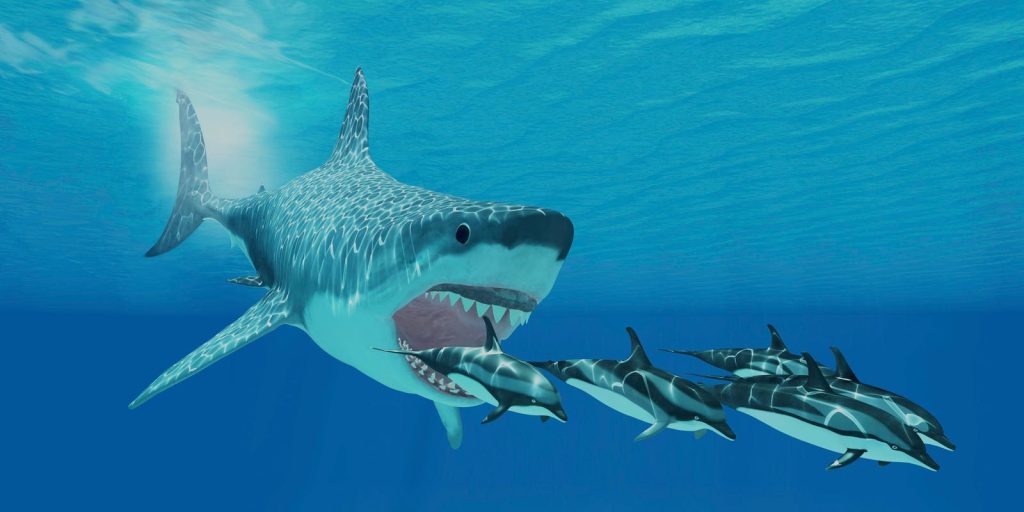At some point Hollywood decided that a week of extant sharks didn’t provide enough cold-blooded killing machines and screenwriters dug back into prehistory to give us B classics like “The Meg” starring the extinct megalodon.
Now new research finds that the largest marine predator to ever terrorize the seas wasn’t so cold-blooded after all.
For the record, it was still a killing machine, just a warm blooded one. So rest easy, the latest science probably won’t slay the future of The Meg franchise.
The new research out today in Proceedings of the National Academy of Sciences suggests that the megalodon’s warm-bloodedness may have contributed to its extinction.
“Maintaining an energy level that would allow for megalodon’s elevated body temperature would require a voracious appetite that may not have been sustainable in a time of changing marine ecosystem balances,” said Randy Flores, a UCLA researcher who worked on the study.
Megalodons may have been outcompeted by some colder-blooded newcomers on the marine predator scene, including the great white shark.
The study, which was led by William Paterson University environmental science professors Michael Griffiths and Martin Becker, looked at fossilized teeth to determine that Megalodons swam hotter than previously assumed.
“Studies using these methods have shown them to be particularly useful in inferring the thermo-physiologies of fossil vertebrates of unknown metabolic origins by comparing their body temperature with that of co-occurring fossils of known metabolisms,” explains Griffiths.
The results found that megalodon body temperatures were likely similar to modern warm-blooded animals, although not as warm as most mammals. The study suggests the megalodon had an overall body temperature of about 27 degrees Celsius or 80 Fahrenheit, which would spell death for most mammals, but is significantly warmer than most sharks.
Its warmer operating temperature may be what allowed Otodus megalodon to grow so huge, dominant and terrifying. The researchers write that its warmer body allowed the species to be faster, tolerate colder waters and range wider around the world.
But when global cooling happened toward the end of the Pliocene Epoch over two million years ago, the ocean ecology changed and megalodon did not survive.
“Because megalodon went extinct around the time of extreme changes in climate and sea-level, which impacted the distribution of and the type of prey, our new study sheds light on the vulnerability of large marine apex predators, such as the great white shark, to stressors such as climate change,” adds Griffiths.
So the Meg’s demise may be bad news for the future of great whites and for shark week as a phenomenon.
Read the full article here










